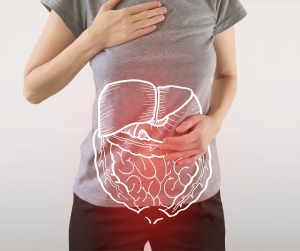Introduction
Are you or someone you know struggling with ulcerative colitis? This chronic inflammatory bowel disease can significantly impact your quality of life, but with proper understanding and management, it is possible to effectively cope with it. In this comprehensive blog post, we will delve into the causes, symptoms, treatment options, and coping strategies for ulcerative colitis, providing expert advice and practical tips for effective disease management.
Causes of Ulcerative Colitis
The exact cause of ulcerative colitis is still unknown, but research suggests a combination of genetic, environmental, and immune factors may contribute to its development. Having a family history of inflammatory bowel disease, exposure to environmental triggers such as infections or diet, and immune system dysfunction are some of the potential causes. Lifestyle modifications such as stress management, a healthy diet, and avoiding potential triggers may help manage the risk factors associated with ulcerative colitis.
Symptoms of Ulcerative Colitis
Ulcerative colitis can cause a range of symptoms that vary in severity. Common symptoms include abdominal pain, diarrhea, rectal bleeding, urgency to have a bowel movement, fatigue, and weight loss. The severity of symptoms can also vary, from mild to severe, and may lead to complications such as dehydration, anemia, or damage to the colon. It is important to seek medical advice if you are experiencing any of these symptoms to get an accurate diagnosis and appropriate symptom management.
Treatment Options for Ulcerative Colitis
The treatment approach for ulcerative colitis may include medications, lifestyle modifications, and surgical interventions. Medications commonly prescribed include anti-inflammatory drugs, immunosuppressants, and biologic therapies. Lifestyle modifications may involve dietary changes, stress management, and regular exercise. In some cases, surgical interventions may be necessary, such as removing the affected colon. It is crucial to work closely with your healthcare professional to develop a personalized treatment plan that suits your needs and regularly monitor your progress.
Coping Strategies for Ulcerative Colitis
Coping with ulcerative colitis can be challenging, but there are strategies that can help. Managing stress through techniques like meditation, yoga, and regular exercise can help reduce flare-ups. A healthy diet that avoids trigger foods, such as spicy or fatty foods, can also be beneficial. Additionally, building a support system of friends, family, or joining support groups can provide emotional support and practical tips for managing the condition. Remember to prioritize self-care, communicate openly with your healthcare provider, and seek professional help if needed.
Conclusion
Ulcerative colitis is a chronic inflammatory bowel disease that requires proper understanding and management. By understanding the causes, symptoms, treatment options, and coping strategies, you can effectively manage ulcerative colitis and improve your quality of life. Remember to work closely with your healthcare professional, make lifestyle modifications, and prioritize self-care to effectively cope with this condition. Don’t hesitate to seek help and support, and remember that you are not alone in this journey.
References
Crohn’s & Colitis Foundation. (n.d.). Ulcerative Colitis. Retrieved from https://www.crohnscolitisfoundation.org/what-is-ulcerative-colitis
Mayo Clinic. (2021). Ulcerative colitis. Retrieved from https://www.mayoclinic.org/diseases-conditions/ulcerative-colitis/symptoms-causes/syc-20353326
National Institute of Diabetes and Digestive and Kidney Diseases. (2017). Ulcerative colitis. Retrieved from https://www.niddk.nih.gov/health-information/digestive-diseases/ulcerative-colitis
Baumgart, D. C., & Sandborn, W. J. (2007). Inflammatory bowel disease: clinical aspects and established and evolving therapies. The Lancet, 369(9573), 1641-1657.
Hanauer, S. B. (2006). Inflammatory bowel disease: epidemiology, pathogenesis, and therapeutic opportunities. Inflammation & Allergy-Drug Targets (Formerly Current Drug Targets-Inflammation & Allergy), 5(3), 217-226.
Share this with your friends








